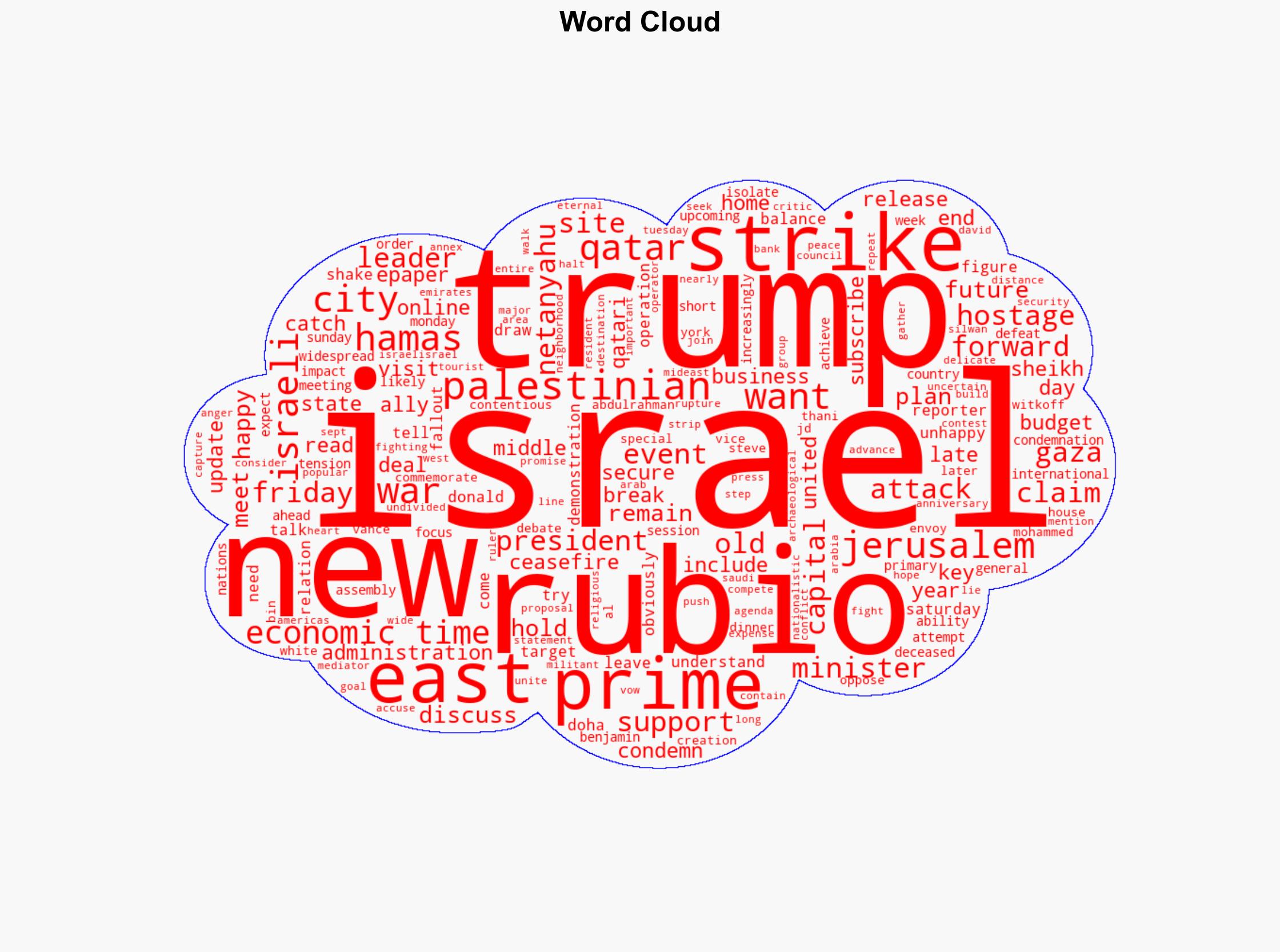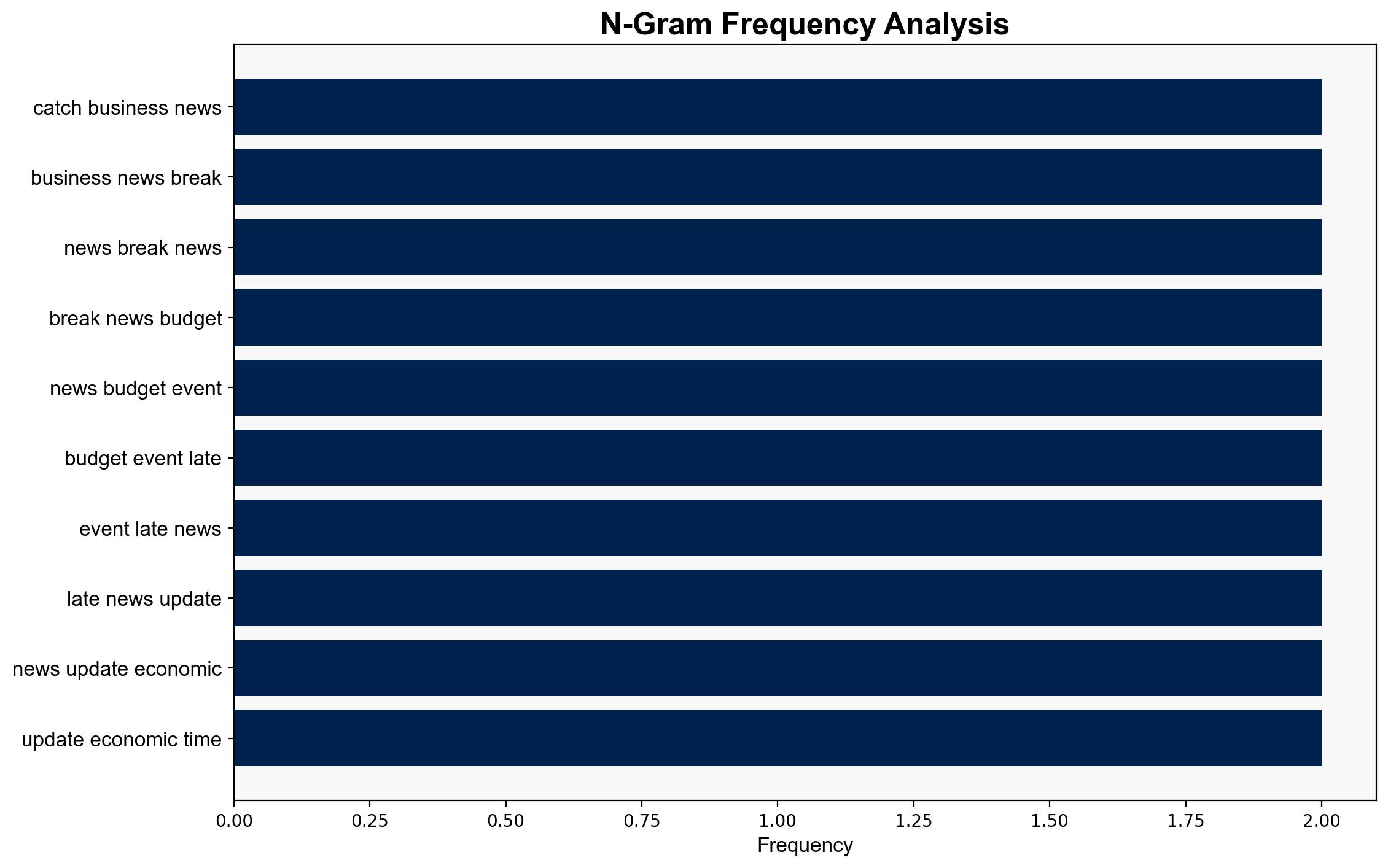Rubio to begin Israel visit in aftermath of Qatar strike – The Times of India
Published on: 2025-09-14
Intelligence Report: Rubio to begin Israel visit in aftermath of Qatar strike – The Times of India
1. BLUF (Bottom Line Up Front)
The most supported hypothesis is that the U.S. is attempting to balance its diplomatic relations in the Middle East while managing internal and external pressures following the Israeli strike in Qatar. Confidence level is moderate due to the complexity and fluidity of regional dynamics. Recommended action is to enhance diplomatic engagement with both Israel and Qatar to mitigate tensions and facilitate dialogue.
2. Competing Hypotheses
Hypothesis 1: The U.S. is prioritizing its strategic alliance with Israel, despite international backlash, to ensure regional security and counter-terrorism efforts against Hamas. This is supported by Rubio’s visit and Trump’s meetings with Israeli and Qatari leaders.
Hypothesis 2: The U.S. is seeking to mediate a ceasefire and stabilize relations with Qatar to prevent further escalation and maintain broader Middle East peace initiatives. This is indicated by the U.S.’s efforts to distance itself from the strike and engage in diplomatic discussions.
3. Key Assumptions and Red Flags
Assumptions:
– The U.S. has sufficient influence over both Israel and Qatar to mediate effectively.
– Israel’s actions are primarily driven by security concerns rather than political motivations.
Red Flags:
– Lack of explicit condemnation of the strike by the U.S. could be perceived as tacit approval, complicating diplomatic efforts.
– Potential bias in reporting could obscure the true motivations and reactions of involved parties.
4. Implications and Strategic Risks
The situation could lead to increased tensions between Israel and its neighbors, potentially destabilizing the region further. Economic impacts include potential disruptions in energy markets if tensions escalate. Geopolitically, the U.S. risks straining relations with other Middle Eastern allies. Psychologically, the ongoing conflict could fuel anti-U.S. sentiment and radicalization.
5. Recommendations and Outlook
- Enhance diplomatic channels with both Israel and Qatar to facilitate dialogue and reduce tensions.
- Encourage multilateral discussions at the United Nations to address broader regional security concerns.
- Scenario Projections:
- Best Case: Successful mediation leads to a ceasefire and improved U.S.-Middle East relations.
- Worst Case: Escalation of conflict leads to broader regional instability and economic disruptions.
- Most Likely: Continued diplomatic efforts with intermittent tensions and slow progress towards peace.
6. Key Individuals and Entities
– Rubio
– Donald Trump
– Benjamin Netanyahu
– Sheikh Mohammed bin Abdulrahman Al Thani
– Steve Witkoff
7. Thematic Tags
national security threats, cybersecurity, counter-terrorism, regional focus




